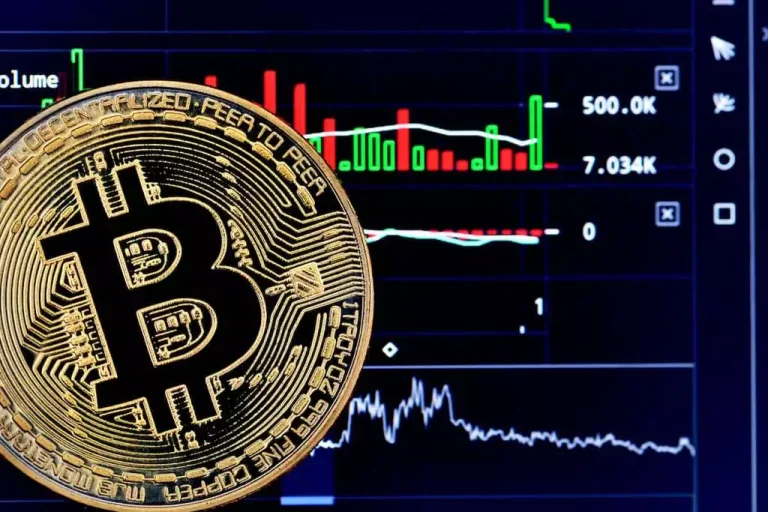In different words, institutional traders are these market gamers that gather others’ corpora to buy and sell securities, like shares, bonds, foreign exchange, overseas contracts, and so forth. The role of a retail investor is to allocate personal capital to varied financial instruments, similar to shares or mutual funds, to develop wealth, save for financial goals, and participate in financial progress. An instance of a retail investor is an individual who invests a portion of their private what is institutional trading financial savings in shares, bonds, or mutual funds via a brokerage account. Institutional buyers are known for their significant market influence and skill to move costs due to the giant volume of their trades. They typically have access to intensive analysis, superior monetary instruments, and professional fund managers who make funding selections based mostly on advanced strategies and market analysis.
Which Means Of Institutional Investor
We are bullish on India, we are bullish on India’s prospects to be one of the largest economies in the world. We imagine that the stock market provides a novel opportunity for all of India’s merchants and investors to participate within the progress story of the nation. Institutional investors are essential for the seamless functioning of the Indian financial markets. Here’s a fast glimpse into the type of function these investors have in the markets.

Omg: The Retail Investor Is The Most Important Participant In The Inventory Market
- Institutional traders have entry to advanced technology, massive data units, and skilled personnel, which can allow them to develop more complicated and complicated trading algorithms.
- The accumulated capital is often allocated to income-generating and steady investments, fulfilling the entire function of pensions, i.e., generating stable and common earnings.
- Institutional traders have access to assets like forwards and swaps that strange traders don’t have.
- Buy-and-hold investments aim to purchase stocks when the worth is low and maintain them for prolonged durations till their prices increase profitably.
- An Institutional investor provides an important capital to publicly traded corporations, fueling development and innovation.
Examples embody pension funds, mutual funds, insurance coverage companies, endowment funds, and hedge funds. These articles have been ready by 5paisa and is not for any kind of circulation. Any copy, evaluate, retransmission, or another use is prohibited. 5paisa shall not be liable for any unauthorized circulation, copy or distribution of this material or contents thereof to any unintended recipient. Kindly observe that this page of blog/articles doesn’t constitute a suggestion or solicitation for the acquisition or sale of any monetary instrument or as an official affirmation of any transaction. This article is ready for assistance only and isn’t supposed to be and must not alone be taken as the idea of an investment determination.
Defining An Institutional Investor
Retailer Algo trading uses computer algorithms by individual traders (often known as “retail merchants”) to automatically execute trades in monetary markets based on pre-programmed directions. Understanding the differences between institutional and retail traders is crucial for anybody looking to engage in the monetary markets. Both types of buyers play an important role in the functioning and growth of financial markets. Stock buying and selling is a simple way to generate returns for all types of investors and traders. All you need is an online Demat account that you could open with a financial planner, dealer, or on-line brokerage agency. Setting up such accounts hardly takes minutes, and you can start your investment journey nearly instantly.
Based On Location, How Are Institutional Traders Divided?
As a outcome, retail buyers typically monitor institutional investors’ activities and regulatory filings with the Securities and Exchange Commission (SEC) to glean insights and establish potential investment opportunities. Due to their intricate nature, these transactions typically deter particular person traders. Moreover, institutional merchants are regularly approached for investments in preliminary public offerings (IPOs). They have the benefit of negotiating one of the best phrases for such transactions. As they deal with giant volumes of commerce, they’ll affect the share value of a stock. Hence, they could distribute their trades amongst completely different brokers to avoid drastic value changes.
This potential is particularly enticing to these seeking to maximise their investment portfolios shortly. Pension funds are funds established using monetary contributions from pension plans. The amassed capital is often allotted to income-generating and secure investments, fulfilling the entire purpose of pensions, i.e., producing steady and regular earnings.

What Are The Various Sorts Of Ipo Investors?
Bombay Stock Exchange was the first buying and selling change in India and Asia, established in 1875. In 1991, the Indian authorities arrange the National Stock Exchange under a group of 5 prominent members, together with Raghavan Putharan, Ravi Narain, Ashish Kumar Chauhan, Chitra Sankaran, and K Kumar. Today, BSE and NSE are the two major homes exchanges where trading takes place. Given their presumed knowledge and considerable assets, an institutional investor usually experiences much less regulatory protection than their retail counterparts. Their huge expertise and financial means allow them to conduct thorough research into myriad investment prospects, ultimately accessing offers and techniques that often remain out of reach for retail traders. The primary advantage is that it permits merchants to execute trades at predetermined times and costs, thereby lowering the risk of error that happens when manually placing orders on an change.
Fund Supervisor – Why & How To Choose The Right Fund Manager?
The final goal of any commerce is to buy shares at a lower cost and wait for the best time to promote them at a higher value. When you want to commerce within the stock market, you may method a monetary advisor or open a Demat account online to deal with it yourself. No matter the way you place the buy or promote order, each trade on the stock exchange is now dealt with digitally.
Tradebulls Securities is likely one of the most trusted Indian financial corporations aimed to make trading easier for everybody, even for many who are from a non-trading background. Being in the market for over 15 years, Tradebulls has earned its large clientele of 2 Lakh+ clients, 2750+ enterprise companions until date. Tradebulls is right here for you with its professionally educated group to offer data and information you thru the identical. To begin trading, you have to join at a brokerage platform that provides access to the structured financial markets.
The securities quoted in the article are exemplary and usually are not recommendatory. The traders ought to make such investigations as it deems essential to arrive at an independent analysis of use of the trading platforms mentioned herein. The buying and selling avenues discussed, or views expressed may not be appropriate for all traders. 5paisa will not be responsible for the funding decisions taken by the clients. Even domestic banks and mutual funds haven’t taken on more marketshare within the last 20 years.

With their significant assets and strategic investment approaches, they have the potential to stabilise markets, fuel large-scale projects and facilitate financial growth. And as you proceed to navigate the complexities of the monetary world, a comprehensive understanding of the roles and influence of those financial powerhouses is crucial. Mutual funds are a well-diversified type of funding across completely different industries and sectors out there out there. They are designed to mitigate the danger of capital losses for his or her buyers via diversification.
Read more about https://www.xcritical.in/ here.